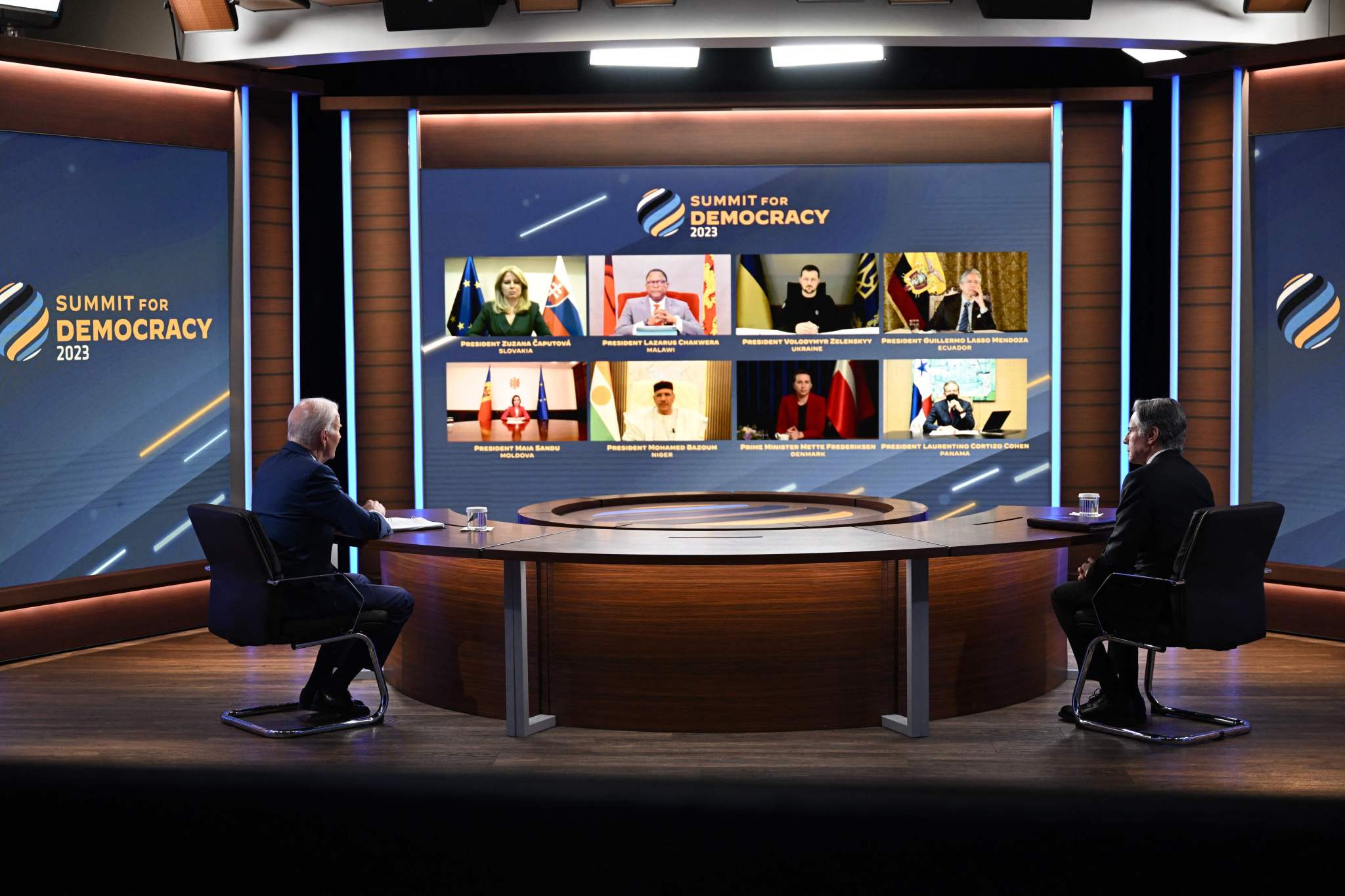
From March 28-30, 2023, the International Republican Institute (IRI), along with other non-governmental and governmental partners, participated in the Second Annual Summit for Democracy (S4D). The 2021 initiative led by United States President Joe Biden and now co-hosted by the Republic of Zambia, the Republic of Korea, the Netherlands, and Costa Rica, is widely recognized at a time when world leaders are seeking to secure confidence in democratic governance and better respond to their citizen’s needs. Over the course of the three-day summit, 170 countries engaged in dialogues on topics such as technology, youth, elections, media freedom, and corruption, among others. Their commitments and efforts to address these important issues were supported by organizations like IRI, which has been working in this space for the past 40 years.
This year, IRI contributed to the Summit in three critical ways:
- Assisted with framing issues on the S4D agenda, priorities, and commitments,
- Participated and co-organized official and unofficial side events, and
- Ensured that S4D agenda and commitments reflect civil society inputs.
First, IRI participated in Democracy Cohorts that were established to track and build upon the Summit’s progress since 2021. The Cohorts allowed institutions like IRI to partner with government entities and help achieve their commitments. Additionally, they provided members with citizen-centered insights on finding common solutions to fight authoritarianism, address corruption, and advance respect for human rights.
Second, IRI hosted and participated in 12 official and unofficial side events in Costa Rica, Zambia, and the United States. At each of these events, IRI extended its expertise based on the core challenges the countries identified.
In Costa Rica, IRI co-hosted four events around youth engagement and their role in promoting democracy, which brought in experienced youth partners and networks such as Generation Democracy (GenDem) and Konrad Adenauer Foundation (KAS) to help youth realize their critical role in shaping a country’s future. Additionally, as part of the Summit for Democracy’s Year of Action, members of the Youth Cohort collaborated to find challenges to and best practices for youth participation in democratic processes, which led to the launch of the Youth Participation Handbook.
In the Republic of Zambia, IRI organized two panel discussions focused on topics around electoral integrity. The need for inclusive participation in elections, with a particular reference to women, youth, and persons with disabilities was emphasized during the first session. Speakers from various organizations joined to identify voting limitations for persons with disabilities and other vulnerable community members. Likewise, the second session was on the role civil society organizations play in helping countries adopt transparent election data practices. Over 30 leaders from global organizations and networks reaffirmed their commitment for a free and fair election by launching the Global Network for Securing Electoral Integrity.
Similarly, in the United States, with a focus on advancing technology for democracy, IRI was part of six official and unofficial side events, of which two were live-streamed. The first was the Summit for Democracy Legislative Track events. The series helped over 50 MPs not only identify their common goals and challenges but also build up innovative ideas to become better responsive government leaders. Furthermore, IRI hosted the Global Fragility Act (GFA) and the Importance of Citizen Centered Governance side event. The U.S. Under Secretary for Civilian, Security, Democracy, and Human Rights Uzra Zeya praised IRI and its cohost, the National Democratic Institute (NDI), in her opening remarks for being “indispensable partners” and for being “at the forefront of democracy promotion and conflict prevention for decades.” Later, Deputy Assistant Administrator for the Bureau for Conflict Prevention and Stabilization (CPS) at the U.S. Agency for International Development (USAID) Robert Jenkins also thanked IRI and NDI for initiating a discussion around GFA and citizen centered governance.
The work highlighted above, especially through supporting youth, election integrity, and technology driven initiatives, reflects ways IRI and other civil society members work actively to strengthen democratic principles and values. Their efforts toward and during the Summit have helped democratic leaders identify the loopholes preventing full democratic freedom for their people. With countries’ continued efforts and help from organizations like IRI, the global movement to retain democracy and counter authoritarianism will succeed.
Top